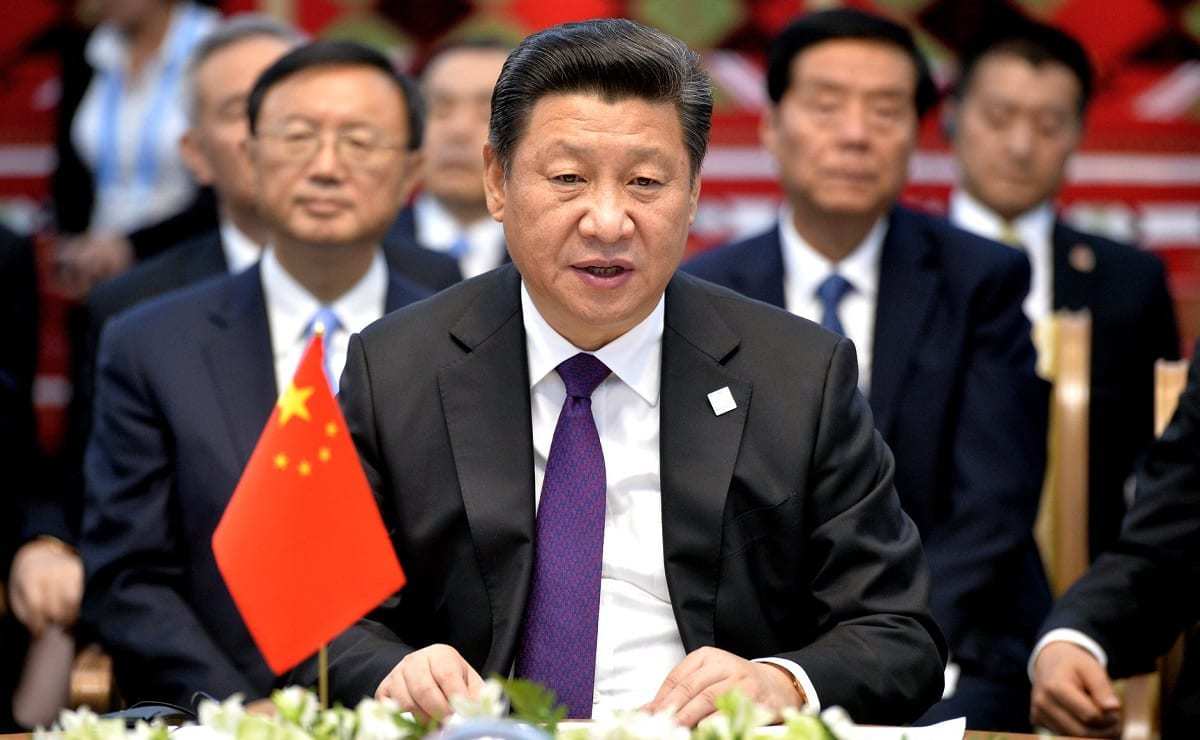Six trillion dollars separate the United States from the People’s Republic of China (PRC) in gross domestic product (GDP) terms. The United States today is struggling economically because of its profligate spending. America’s middle class is under siege, inflation is unbelievably high, and interest rates are, correspondingly, high. There is very serious concern that America is in decline and many—notably those in China—believe that America’s lagging economy validates this perception.
China, on the other hand, is struggling because its government presided over one of the world’s most stringent COVID-19 lockdowns and then allowed the country’s property market to collapse. As much as elites in Washington are convinced of China’s inevitable implosion, elites in Beijing are also confident that the United States will fragment and collapse.
Despite these perceptions, the people of both countries continue seeking greater prosperity. China’s technology sector, despite being under Western sanctions, continues to develop into a real challenger to the United States. Meanwhile, in the United States, despite the negative view most Americans have about the economy, people are still working—and seeking more work to support themselves.
In terms of comparing the systems of the two nations, China’s GDP growth has been at record highs since it initially opened itself to trade with the West. In the last decade, though, those stratospheric, double-digit growth rates have started to fall back to the Earth.
China’s Slowdown
Interestingly, according to Bloomberg’s Gerard DiPippo, “So far this year U.S. gross domestic product is growing faster than China’s in nominal terms.”
Specifically, the U.S. has experienced 6.5 percent nominal GDP growth versus China’s 4.8 percent growth. Although, it should be noted that the American numbers are being hampered by the country’s aforementioned high inflation rate whereas China’s numbers are being dragged down by their country’s massive deflation rate.
Plus, as DiPippo wrote, the U.S. dollar is stronger than China’s yuan “for the first time in decades.”
This means that China, once the primary destination for Western investment, is no longer looking like as great of a place to invest. Those pushing the notion that China’s collapse is imminent insist that the collapse has already been initiated.
It is, according to them, not that much longer until the Chinese Communist Party (CCP) goes the way of the Qing Dynasty.
After all, the entire Chinese economic miracle is built upon the foundations of wanton industrial espionage directed against the U.S. and the rest of the West, copious foreign investments, and a brain drain from the West into China.
But if China’s economy is no longer as attractive to the West, then, the likelihood that China’s economic miracle becomes unsustainable increases. Further, China’s “Zero COVID” policies and the collapse of the property market in China made the country less attractive to Western investment at a critical moment in China’s development.
Bad Things Are in Store for China
Throw in longer-term negative trends, such as massive population decline, along with fears that China “will get poor before it gets rich”, and suddenly the purported inevitability of China displacing the United States as the world’s leading economy becomes an increasingly distant notion.
But that doesn’t mean that China will never overtake the United States economically. It also doesn’t mean that China won’t risk a war with America.
More to the point, if China’s days as an economic dynamo are really at an end, then it stands to reason that China’s leadership—especially President Xi Jinping—would be more inclined to lash out militarily against his neighbors. If China were to do that, then, under no conditions would China possibly overtake the United States economically.
Whatever the outcome of any Sino-American conflict, if the Chinese managed to best the Americans, their victory would be pyrrhic at best.
Nations go through ups and downs economically. The fundamentals of China’s economy are shakier than in the West. But that doesn’t mean that China is inherently going to collapse simply because they’ve had a weaker-than-average year of growth or because some Western companies are pulling back from the country.
In 2020, it was assumed that China would best the Americans in the geoeconomics race for supremacy by 2027, making it the first time in over a century that the United States doesn’t possess the world’s largest economy.
Still, there is clearly a downturn in China. And because of that downturn, many experts are now pushing China’s economic victory over the U.S. to 2030, or possibly, never.
If that decline persists, aside from whatever military adventurism such a slowdown might precipitate from China’s leaders, it will inevitably stymie China’s march to become the world’s leading economy by the end of the decade.
Rather than assume China will simply vanish in the next few years, American leaders must embrace a comprehensive strategy for geoeconomic competition and work to restore deterrence to such a degree that no Chinese leader is insane enough to risk a war of territorial aggrandizement rather than to focus their energies on repairing their ailing economy.
As a former German POW said of the United States after having been imprisoned here during the Second World War: “I couldn’t believe how rich America was. We never stood a chance.” This is true of America today in relation to China. Beijing should never forget that.
A 19FortyFive Senior Editor, Brandon J. Weichert is a former Congressional staffer and geopolitical analyst who is a contributor at The Washington Times, as well as at the Asia Times. He is the author of Winning Space: How America Remains a Superpower (Republic Book Publishers), Biohacked: China’s Race to Control Life (Encounter Books), and The Shadow War: Iran’s Quest for Supremacy (July 23). Weichert occasionally serves as a Subject Matter Expert for various organizations, including the Department of Defense. He can be followed via Twitter @WeTheBrandon.

